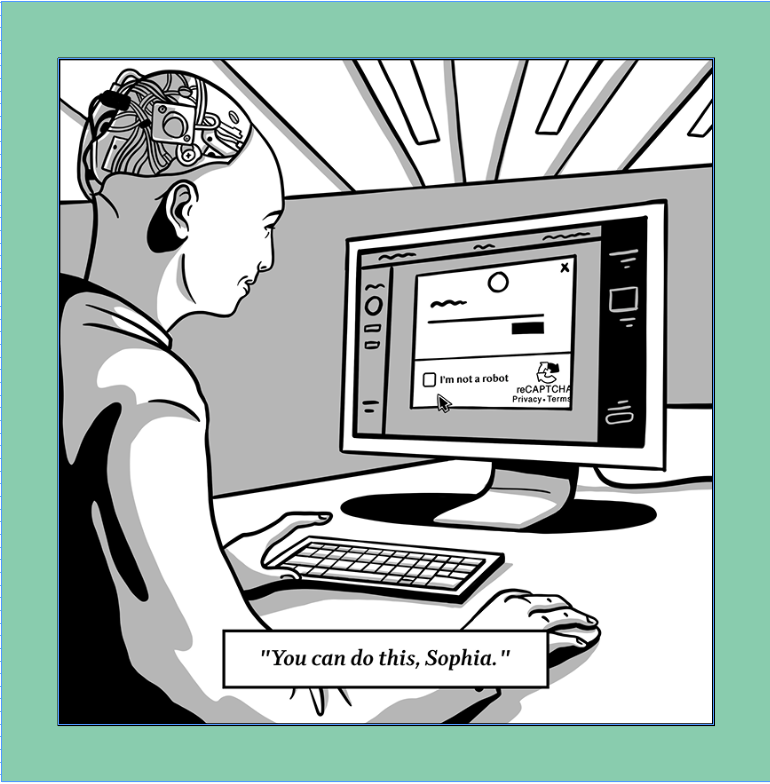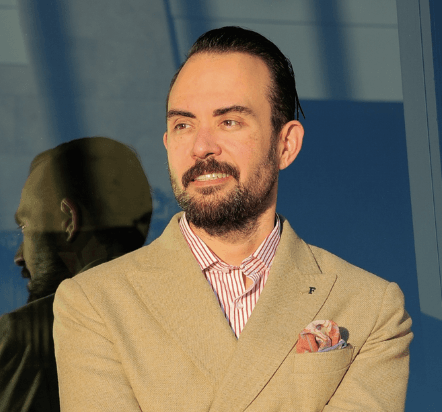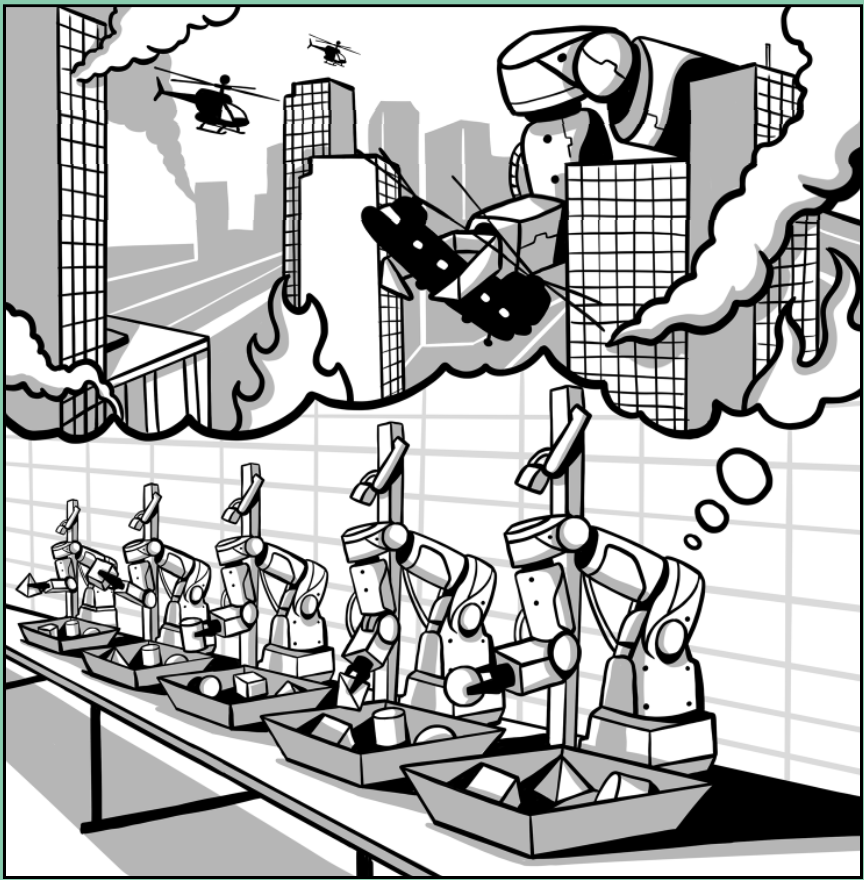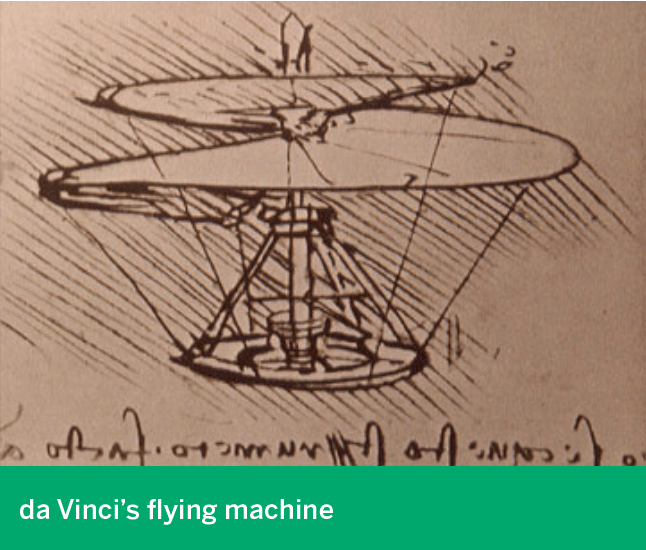Facing Intel Inequality
Coding and STEM skills aren’t enough to keep humans relevant in the Age of Artificial Intelligence
Swedish-Australian futurist and innovation strategist Anders Sörman-Nilsson averages 240 travel days a year. He traverses the globe to advise major companies, deliver speeches and share his thoughts on the future.
Organizers of the G20 Summit sought Sörman-Nilsson as a speaker, and the World Economic Forum nominated him to its list of Young Global Leaders.
His books include Thinque Funky, Digilogue and Seamless. He specializes in “ideas that expand minds and inspire a change of heart.”
He caught the attention of luckbox at a recent international business conference where he declared that most companies are “perfectly prepared for a world that no longer exists.”
Sörman-Nilsson was kind enough to field some general but pressing questions from luckbox.
What trend seems likely to have the greatest positive influence in the next five to 10 years?
The Mirrorworld. This is the emergent third-tech platform—after the web and social media. It holds huge promise for a more humane world. The Mirrorworld is the parallel digital universe of all physical things. It’s an exponential, immersive version of the Internet of Things, where we will be able to simulate and solve humankind’s biggest problems—from climate change and food security to transhumanist healthcare and social justice.

Everything, human and nonhuman, will become machine readable, and thus could be translated into code, which could be improved and innovated upon. Because of that, we can all become futuristic science fiction authors and win both hearts and minds as we showcase what’s to come. We can predict what the world of 2030 might look like if we don’t intervene or what utopia could be if we do intervene smartly. It will be both a future medium and a second place our digital twins will inhabit—a place where real life can be tinkered with and upgraded.
What trend appears likely to have the greatest negative impact in the next five to 10 years?
Reversionism. We are living in an age where humans no longer have a monopoly on intelligence, where we are becoming cyborgs and where our own intelligence is becoming augmented by artificial intelligence. What concerns me today is not so much that machines are learning—quickly and deeply—but that we as humans, in our state of future phobia, still resist change. And the reality today is that change doesn’t care whether you like it or not. It will always happen without your permission.
As a society, we don’t just have future shock. We also have present shock, and we desperately hope that being nostalgic is the same thing as being strategic. The global rise of populist politicians who are waving the magic wand of nostalgia play to the fears of victims of future shock and are promising reversionistic time travel narratives to the “good old days.” In this age, many people’s rearview mirrors seem more vivid than their low-res vision into the future.
If there was ever a time not to be ignorant, complacent or bigoted, that time is now. The rate of change has never been this fast and will never be this slow again. This may sound shocking, and it is truly testing our adaptive responses as humans. Tech adoption rates today are skyrocketing, the longevity of companies in the Fortune 500 is decreasing at a rapid clip, and automation is affecting both our brawn and our brains.
In this world, AI will be doing to white-collar work what robots have already been doing to blue-collar work. Contemporaneously, education is failing to shift out of the past tense and is suffering a failure of imagination by narrow-mindedly touting the supposed panacea of STEM (science, technology, engineering and math) skills, all of which computers and robots will trump humans at in the future.

We are educating our youth for jobs that will no longer exist and are failing to see today’s digital disruption as a signal from the future that it is time to change—both on a personal and societal level. Reversionism runs the risk of driving a wedge between the human haves and the human have-nots, between the futurephiles and the futurephobes, and could have dystopian consequences.
What commonly promoted prediction will not come true?
The commonly held belief that learning to code and focusing on STEM is the only way to future-proof yourself in an age of the machines is fundamentally misplaced.
In the disruptive process that is change, there is a silver lining. We have to remember not to throw out the analog human baby with the digital bathwater. The choice is not necessarily about humanity or technology.
STEM is not an educational panacea, but the science, technology, engineering and math can be combined with more right-brained skills that are directionally important. Even more critically, we have to invest in humanity’s empathy, creativity, entrepreneurship, innovation, ethics and emotional intelligence.
While AI will excel at left-brain logic, processes, math and data-crunching, AI will be slower to master the right-brain functions of emotion, creation, synthesis and invention. Given that we will want to code our AI to be ethical and humanely empathetic, we would do well to raise our own game and build these muscles first.
We must not digitize faulty or underperforming human software. Maybe the irony of this digitization is that it enables every human to tap into true creative genius and have freedom from menial labor. We have the right and obligation to pursue our true humanity and creativity, ushering in a second renaissance of human output and enabling more meaningful human dialogue.







